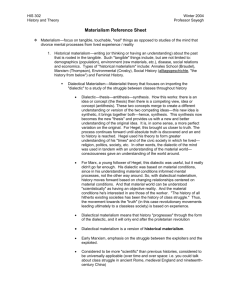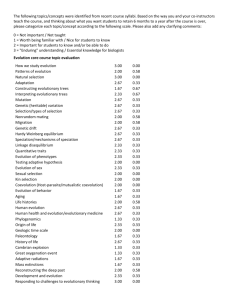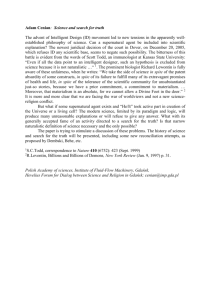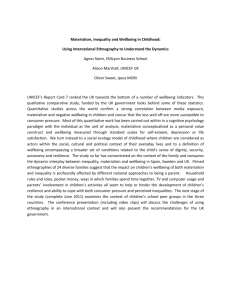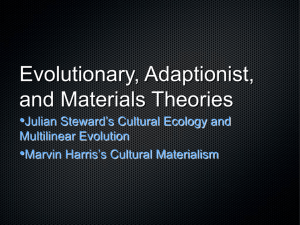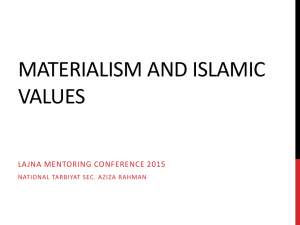Stephen K - faculty.rsu.edu
advertisement
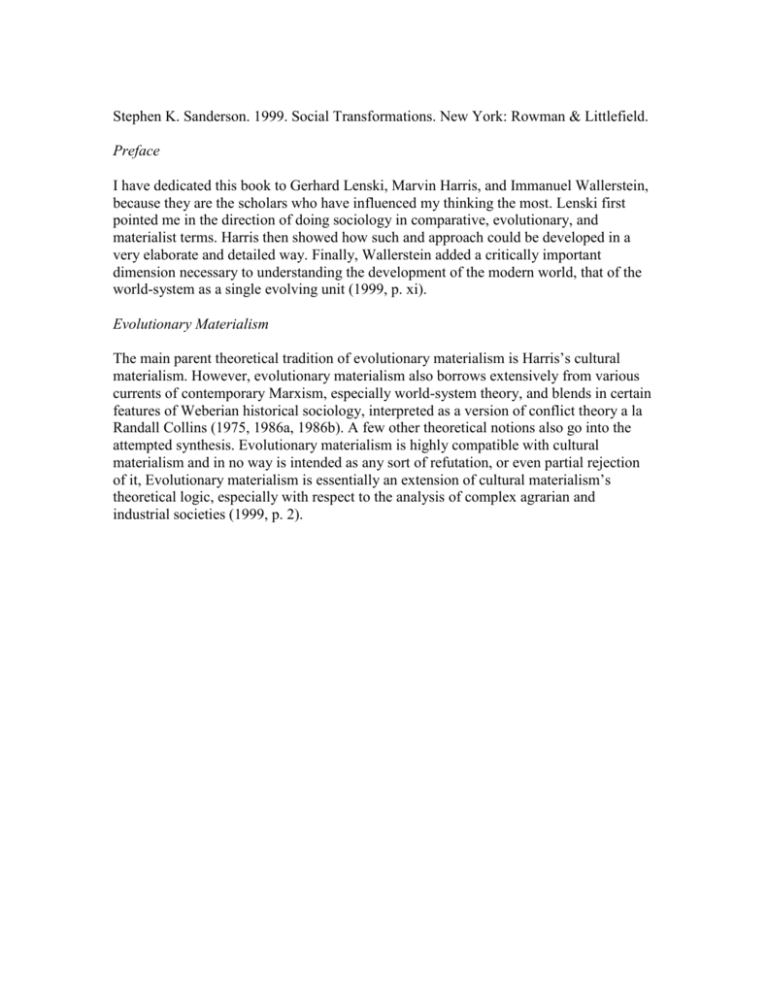
Stephen K. Sanderson. 1999. Social Transformations. New York: Rowman & Littlefield. Preface I have dedicated this book to Gerhard Lenski, Marvin Harris, and Immanuel Wallerstein, because they are the scholars who have influenced my thinking the most. Lenski first pointed me in the direction of doing sociology in comparative, evolutionary, and materialist terms. Harris then showed how such and approach could be developed in a very elaborate and detailed way. Finally, Wallerstein added a critically important dimension necessary to understanding the development of the modern world, that of the world-system as a single evolving unit (1999, p. xi). Evolutionary Materialism The main parent theoretical tradition of evolutionary materialism is Harris’s cultural materialism. However, evolutionary materialism also borrows extensively from various currents of contemporary Marxism, especially world-system theory, and blends in certain features of Weberian historical sociology, interpreted as a version of conflict theory a la Randall Collins (1975, 1986a, 1986b). A few other theoretical notions also go into the attempted synthesis. Evolutionary materialism is highly compatible with cultural materialism and in no way is intended as any sort of refutation, or even partial rejection of it, Evolutionary materialism is essentially an extension of cultural materialism’s theoretical logic, especially with respect to the analysis of complex agrarian and industrial societies (1999, p. 2).





